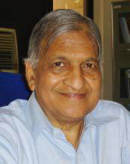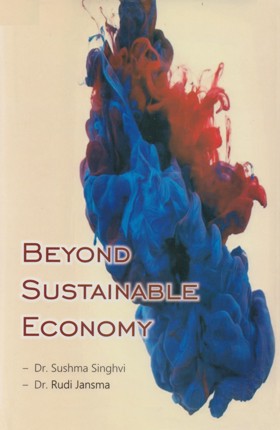Swami Vivekananda was born to Vishwanath Dutta and Bhuvaneshwari Devi on Monday, 12th January 1863. He was named Narendranath Dutta and was lovingly called Naren. His father was a famous lawyer of the High Court of Calcutta. He was widely travelled and knew many languages including Persian and English. His mother was a pious lady who inculcated in him the virtues such as fearlessness, an independent spirit, honesty, justice and devotion. His family was affluent and was known for its philanthropy. His father, however, kept close watch on his children and did not allow any deviation from good manners.
As a child, Naren was attracted by the story of Rama and his faithful consort Sita. However, later in his life, when he became convinced of renunciation as the greatest good, and he adored Shiva, the god of renunciation. Still a child, Narendra already meditated in front of the image of Shiva.
At six, he was sent to a primary school. However, one day, when his parents found him repeating some vulgar words that he had learnt from his classmates, he was taken out of school and a private tutor was appointed to teach him. He showed an early mental development and a good memory. He easily learnt the whole Sanskrit grammar and long passages from the Indian epics by heart. Once in his early days he asked his father, ''Father, how shall I conduct myself in the world?'' His father told, "Never show surprise at anything." This advice helped him to maintain serenity under various conditions. In yet another occasion when he was unjustly treated in school, he told this to his mother and consoling him, she said, "My child, what does it matter as long as you are right?" Always follow the truth without caring about the result. Remember never to abandon truth".
As he grew older he showed a remarkable change in his temperament. From his boyish sports he took keen interest in intellectual matters. He read books on history and literature. He read newspapers too. His father proved to be very encouraging and enabled him to meet scholars to discuss various subjects and intricate topics much beyond the capacity of boys of his age. Even under these circumstances he showed remarkable mental power. He was bestowed with a great power of reading. Speaking on his reading ability, he said, "I could understand an author without reading every line of his book. I would read the first and last lines of a paragraph and grasp its meaning'. Professor Hastie, Principal and Professor of English literature of the Scottish Church College referring to Naren said, "He is a real genius. I have travelled far and wide, but have not yet come across a lad of his talents and possibilities even among the philosophical students in the German universities". True to these words, Narendra completed his graduation, took part in many physical activities and also studied music. He learnt to play many instruments and learned to sing devotional songs in Hindi, Urdu and Persian. He also joined the Brahmo Samaj.
Swami Vivekananda's Thoughts and Views
Swami Vivekananda had strong views on education, religion and values. His views on education were very broad and deep. He held high objectives for education. One needs to be highly devoted and committed to achieve them. According to him, "The training by which the current and expression of will are brought under control and become fruitful is called education". Education should make of human being a man [or woman]. By this he meant education ''by which character is formed, strength of mind is increased, the intellect is expanded, and by which one can stand on one's own feet.'' The education should imbibe Spirituality and a Plural attitude in the students. He stressed the role of the teacher in imparting good education. The students, besides their curriculum, should also be made aware about the society and its nature, culture and values.
On Religion
On AparigrahaThe advance in science, technology and other branches of knowledge such as psychology, humanities, politics etc. has succeeded in raising the standards of our lives. However, at the same time, we notice a decline in the moral and ethical values in our life time. Nepotism, corruption, fraud and crime have grown in quantity and severity. People have moved away from spiritualism to materialism. They have become greedy and are living a life of accumulating earthly possession. This has given rise to making the rich richer and poor poorer. The gap between them has widened. Violence is spreading in the name of Naxalism and terrorism. The common man lives under a shadow of insecurity all around. We seem to have forgotten the spiritual and religious cultures of ancient times that guided us on the path of both Abhyudaya (social and individual progress) and Nishreyasa (path of renunciation) for human fulfillment.
Swami Vivekanda believed in Advaita Vedanta. The main points of his teachings are: 1) that each soul is potentially divine, 2) the goal of human birth is to realize this divinity within and manifest it for the welfare of the humanity, and 3) Essentially all religions lead to the same realization. According to him, if a person does not believe in worship and its obbligato he need not do them. Still he can achieve higher consciousness by simply concentrating his mind on it. The ultimate purpose of man and his evolution is attaining divinity. One should ask if the rituals, religious practices, etc., lead one to a higher level of consciousness and divinity. If yes, one should follow them, otherwise reject them. These practices and rituals are the means to the end of higher consciousness and Self-Realization and not an end in themselves.
Swami Vivekananda was a great protagonist of non-possessiveness, i.e., aparigraha. He was clear that the sole purpose of human life is the attainment of higher consciousness. He realized that possession is a hindrance to one's progress towards Self-Realization. He pointed out that one's peace and happiness depend not on the wealth or the power or knowledge or on the scholarship one possesses, but on living a life of renunciation. The awareness that one is the part of the entire universe and that all constitute one family - Vasudhaiva Kutumbakam is very important for one's Self-realization. The spirit of Swami Vivekanda's teaching lies in renunciation and service. He emphasized that in order to achieve Self-Realization, every human be ing should strive to make non-possession and service as their virtues.He was a strong votary of non-possessiveness or aparigraha. In regard to renunciation he preached that "It is always for greater joy that you give up the lesser. This is practical religion the attainment of freedom, renunciation. Renounce the lower so that you may get the higher. Renounce! Renounce! Sacrifice! Give up! Not for zero, Not for nothing, but to get the higher." A person who does not possess a house, or clothes etc., or has given up everything, is not necessary free from attachment. He might be still very possessive about his only possession, his own body. A king on a throne may perfectly be non-possessive and unattached; in contrast, a beggar in the street may be highly possessive and attached. In other words, non-possessiveness does not mean giving up every material possession one has but it is a state of mind. Aparigraha is in the mind of the person. Elucidating this point, he opined that ''Those who have succeeded in attaching or detaching their minds at will have succeeded in Pratyahara, which means 'gathering towards,' checking the outgoing powers of the mind, freeing it from the thralldom of the senses. When we can do this, we shall really possess character; then alone we shall have taken a long step towards freedom. Before that, we are mere machines''.
Conclusion: Narendra Nath Dutta, that is Swami Vivekananda passed away on July 4, 1902. He left behind a strong legacy of strong character the basis for any human development. He urged the youth to "Arise, awaken and not to till the goal is reached." He was of the strong opinion that unless one realizes the Truth, there is no emancipation from the cycle of birth and death. His teachings basically revolved around fundamental issues such as harmony of all the world's religions, universal brotherhood and solidarity and above all the human being as the reflection of God himself. Hence, on many occasions, he emphasized renunciation and service to mankind. He observed, "To the hungry religion comes in the form of bread." He was not against material possession. In fact, he was of the view that religion should bridge the gap between material progress and spiritual enlightenment. He was of view that, "Each soul is potentially divine. The goal is to manifest this divinity within by controlling nature, external and internal. Do this either by work, or worship or psychic control, or philosophy, by one, or more or all of these and be free. This is the whole of religion. Doctrines, or dogmas; rituals, or books, or temples, or forms, are but secondary details."
"Renounce! Renounce! Sacrifice! Give up!... to get the higher".
 Dr. Ashok Bapna
Dr. Ashok Bapna
 Dr. Rudi Jansma
Dr. Rudi Jansma
